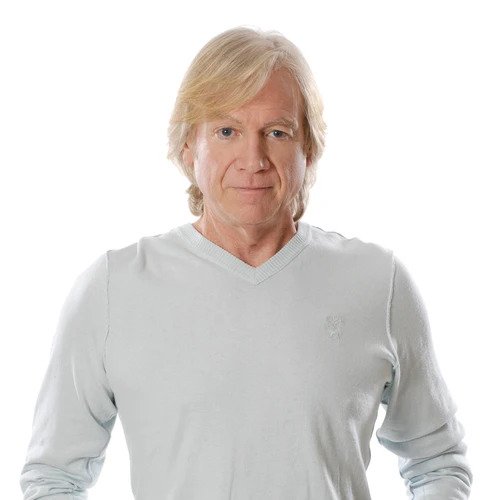
Concert Preview: Moody’s Justin Hayward Mixing Old, New For May 17 Gig
RIDGEFIELD — With a half century of music making and journeyman’s equivalent of hundreds of trips around the planet in the rear view mirror, you’d think that Justin Hayward, The Moody Blues guitarist and songwriter of hits “Nights In White Satin,” “Question,” and “Your Wildest Dreams” would be ready to take things down a notch.
But quite the opposite is true.
Hayward has continued to ping between tours with “The Moodies” to supporting his thriving catalog of solo material with shows around the world and a brand new tour that pulls into The Ridgefield Playhouse on Tuesday, May 17, for an 8 pm show.
Talking tour plans recently with ABC Radio, Hayward said: “There’ll be things from most of The Moodies’ albums, and certainly some things that we’ve never done on stage before with The Moodies. And, of course, the songs from [the 2013 solo album] Spirits of the Western Sky.”
With support from longtime collaborator Mike Dawes, Haward will arrive in Connecticut just a week after a Boston premier for his latest project, Live In Concert at the Capitol Theatre.
The concert DVD — filmed during a 2015 solo tour and featuring Hayward, Dawes and Moody singer and multi-instrumentalist Julie Ragins — was created by David Minasian, who produced the award-winning documentary, The Story Behind Nights in White Satin, and another Hayward video, Spirits Live.
During an exclusive interview with The Newtown Bee the morning after his May 9 DVD premier, Hayward said the event also unveiled an epic new number, “The Wind of Heaven,” which will be prominently featured in an upcoming film.
A post on Hayward’s website relates, “A few years ago I was lucky enough to meet a man named David Minasian. After that, we became firm friends. Recently, he told me about a movie that was in production — the story of a veteran who returns back from Afghanistan and really loses his way and has to find his life again. And he finds it through horses… and the horses give him back his life. It’s going to be a lovely movie and it goes into production later this year. David and I jumped the gun a little bit; we got so carried away with the story that we wrote a song together…”
Talking about the song, Hayward toldThe Bee as a former owner and horse lover himself, he could relate how the animals tend to have a special energy about them that can play a role in helping heal and soothe people.
He also tolerantly endured plaudits toward his influence on rock music, and observations about his senior stature among a rapidly shrinking field of veteran rock stars.
The Newtown Bee: A lot of people in the music business strive to make history, but you played a role in creating and maintaining a genre all your own. What do you think about having established the cornerstone of the symphonic genre of progressive rock?
Justin Hayward: (chuckling) Oh dear… I’ve just been very lucky to have been with labels, and record companies and labels that have encouraged me to do what I want to do. I never had a head of A&R (artists and repertoire) standing over me. That was the one thing at Decca (Records) how we were lucky. We recorded Days of Future Past by chance, a lucky accident — the making of the album wasn’t our idea, so we were just lucky. And after that they said we didn’t need A&R, they just wanted us to make albums. That’s just the way it’s been, and it’s just fortunate that we were neither under pressure to be celebrities, nor were we pressured to make singles. Then it was just a case of me staying true to myself, and doing what I thought was right.
Bee: In 1969 you wrote “I’d Never Thought I’d Live To Be a Hundred” which was featured on the album, To Our Children’s Children’s Children. And in 2016 you’re playing music for many of those ’69 fans who are bringing along their grandchildren to the concerts. Is that a driving motivation behind why you’ve apparently never seriously considered retiring?
Hayward: If I retired John, what would I do? Hmmm… walk around. You know I live near the Italian border, so what would you have me do? Walk around with my X-Rays going from doctor to doctor? (laughing)
Bee: While you’re a guitarist, you’ve long acknowledged the integration of early-stage synthesizer technology — the Mellotron — as a huge compliment to your songwriting style and the Moody Blues sound.
Hayward: The Mellotron really worked for us, gave us that classical, classic rock kind of thing. And I have to say, we were probably even before that prog-rock thing. Mike (Pinder) was able to bring that wonderful Mellotron sound, and I think that kept things interesting.
Then we had a phase in the mid-’90s where we were working a lot with full orchestras. There were a number of subsidized performances with full symphonies, some filmed for PBS. We couldn’t afford to take an orchestra on the road with us, but there were many chances to play with orchestras in America and Europe in the many cities we visited. In fact, even now PBS has been kind showing Spirits Live and demanding almost daily that I do something new for them. So maybe it’s time to explore doing something orchestral live for them.
Bee: Was part of it an idea of exposing more classical purists to what was then emerging music, that in your case had a lot of lyrical references that had appeal to consumers of more epic classical material?
Hayward: Because we weren’t hampered by just having to write three-minute pop songs, we were able to write about things we were going through in life, searching and seeking, things we were reading and the people we were learning things from.
Bee: I understand at one point you began practicing Transcendental Meditation. Do you think having the ability to find that deep calm in the eye of any storm has kept you looking and feeling so young?
Hayward: I still use the mantra — it’s still very personal to me. It (represents) very precious days for the four of us — me, Mike, John and Graeme, yes. It was a very moving period of our lives — you never forget that stuff.
Bee: Last night you were in Boston for a DVD release party for Live in Concert at the Capital Theatre. How did the event go?
Hayward: It was great — people are so kind. They were trying to move people along but so many fans of the Moodies wanted a few moments to talk about how the music touched them.
Bee: You have done some magical work. I was introduced to you by a rabid fan back around 1974 or ’75.
Hayward: But I think it’s really them, the audience, who bring the magic to the music. I respect the genius of a composer, but I don’t think he’s as focused as much on the mechanics of creating a song for an audience as I am — when I’m writing a song. It’s just me and them, but it’s the ones listening to it that bring the emotion to it.
Bee: There was a lot of mystery around an epic new song you wrote with David Minasian, tell me more about “The Wind of Heaven.”
Hayward: I’ve never really been successful writing with other people — I thought I got close with Jeff Wayne. But with David this time and “The Wind of Heaven,” it’s one of the nicest things I’ve ever done. It’s a lovely and interesting story. He wrote some thoughts and handed it off to me to run with it. It’s about an American veteran who goes to work with horses and through working with them on a ranch, gets his life back.
Bee: Did being a horse owner give you some unique insight to that experience?
Hayward: My years with horses and being close with horses, caring for them and riding for more than 10 years and keeping them for best part of 20 years gave me an understanding of that world — of the horse ethic and mentality, such beautiful creatures. It did give me an empathy for the horse subject.
Bee: I always admired that you almost exclusively played one guitar — a Gibson 335 — throughout most of your career, one of the first guitars you ever owned. Has Gibson tried to talk you into retiring it and bringing around a more contemporary version of their instrument?
Hayward: I do still bring around that original one, but I’m starting to get a bit worried about it. Fortunately for this tour it’s mostly acoustic, so i don’t know if (the 335) will see a gig this year. But I do worry about it. It’s not the value of that guitar, it’s just that you simply can’t find it anymore.
Bee: Do you still have a regular routine of practicing guitar or songwriting? Or do you just pick up the guitar or the writing pad when the mood strikes you?
Hayward: Yes, I play for pleasure every day.
Bee: You not only continue to appear very youthful, but I see from some comments on your website that the ladies still go a little crazy about you.
Hayward: (laughing) Do they? I guess the music keeps me young. You know once I’m back in the dressing room, I look my age!
Click here for tickets and information for Justin Hayward’s May 17 show at The Ridgefield Playhouse. And check out Justin Hayward performing “In Your Wildest Dreams” during a 2013 set at The Ridgefield Playhouse:
